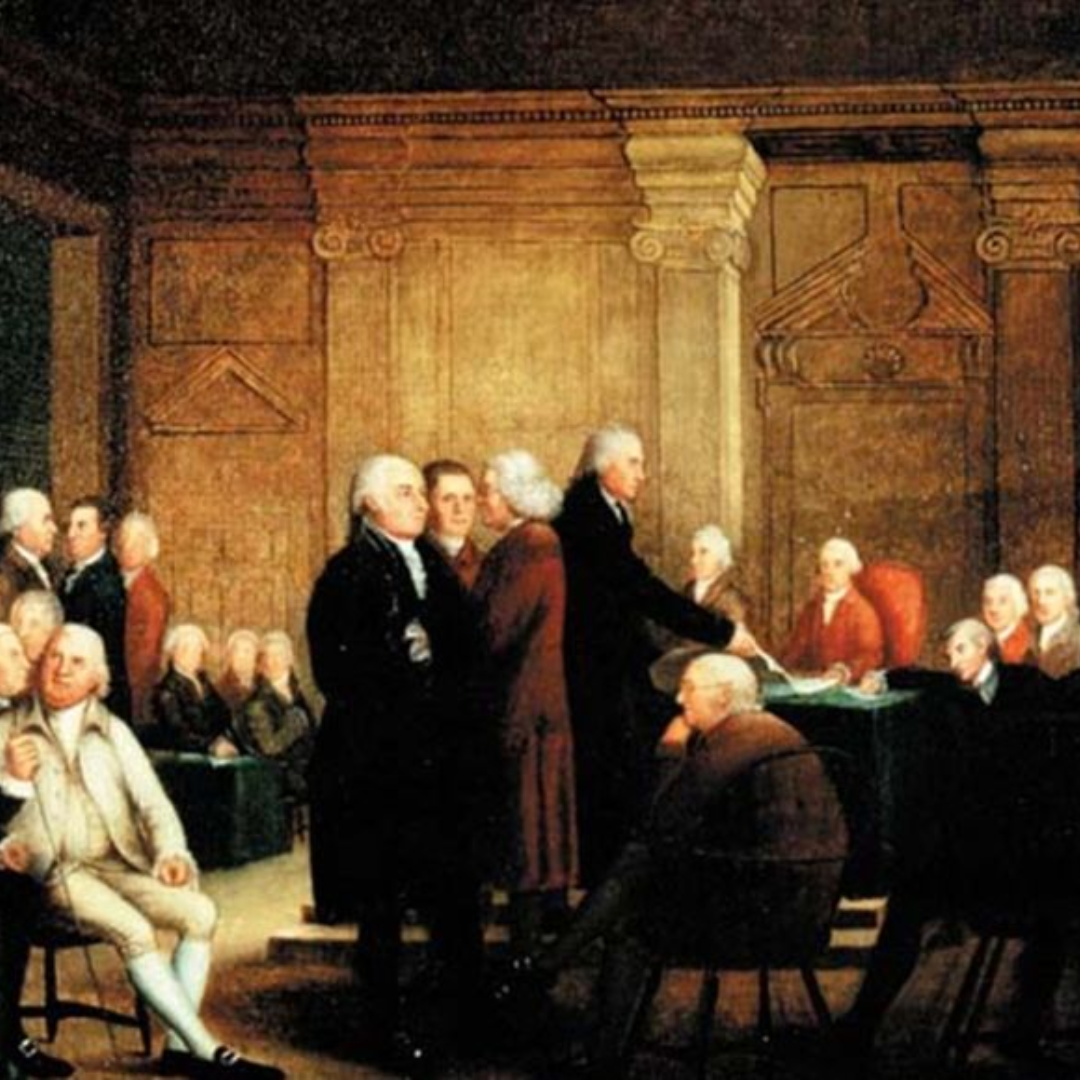I was sitting in an American Public Policy class,watching a documentary about the Constitution. It featured Peter Sagal driving on a motorcycle with a copy of the Constitution. I thought back to the footage of Congress I had seen. I remembered watching Congress voting in 2019 to censure the then-president and realized that most of the speeches that I heard did not mention the Constitution, but instead the Federalist Papers. That is when I realized that the Federalist Papers are actually more helpful than the Constitution for explaining how the government should work, even though they do not star in as many movies.
But why should you read them? Here are 5 compelling reasons:
- A Rulebook vs. A Guidebook: One key difference between the Federalist Papers and the Constitution is their purpose. The Constitution is pretty dry because it is a rulebook. It establishes what the federal government and state governments can and cannot do. Outside of the preamble, it does not really state the purpose of the government nor how to effectively govern. The Federalist Papers, on the other hand, were written to convince states to approve the Constitution. Therefore, they lay out both the specific functions of the government and justifications for why the Constitution is the way it is. Today, it is no longer necessary to convince the states to ratify the Constitution. However, the Federalist papers still serve an important role as a guidebook for government officials. If you want to understand what to expect from the Senate or from the Presidency, you need to read the Federalist Papers.
- There is a reason it is quoted more in congressional debates. Contrary to what you might think, speeches on the House floor often reference the Federalist Papers and not the Constitution. Why is that? The problem with only looking at the Constitution is because of the need for brevity, many of the terms in the Constitution are not defined. This problem can be illustrated in Supreme Court cases where the dispute is partly over semantics: What is commerce? What is an insurrection? Right now, the Supreme Court is arguing about whether the president is technically an officer of the United States. Debating using the Constitution can cause us to get bogged down in pointless debates. The Federalist papers are easier to understand, although the language is difficult. The Federalist Papers are a series of over eighty essays they are more in depth. They are doubly helpful because one of their authors, James Madison, is the father of the Constitution, so his contributions can be genuinely said to represent the views of the people who crafted our Constitution. These essays are frequently cited, not only in congressional debate, but in Supreme Court cases as well, since they provide the clearest indication for textualists (those who interpret the Constitution by the book) as to what the founding fathers meant when they wrote the Constitution.
- What about the Supreme Court? If you have ever read the Constitution, you probably noticed that while the legislative branch takes up most of the document and the executive also uses up a substantial portion, the judicial branch is not discussed with any specificity. Federalist 78-83 covers the judicial branch extensively. Anyone interested in how the Supreme Court is supposed to work and how to reform it should read these essays since they provide valuable insight into the intentions behind the highest court in the land.
- Defending our institutions. Today, more than ever, there is a significant number of Americans who want to alter or abolish our institutions. I believe it is helpful that the public know why institutions were created as they were, before we vote on whether to change them. Federalist No.68 provides justification for one of the most controversial ideas in the Constitution: the Electoral College. Proponents and opponents of the Electoral College should read it, in order to educate themselves.
- A Prescient Warning. After the Constitution was approved, most of the Federalist Papers were considered no longer useful to the public. The big exception to this rule is Federalist No.10. It was cited by Alexander De Tocqueville in his famous book, Democracy in America (which I would also recommend everyone read). Federalist No.10 concerns the danger posed by factions, groups of people united in a single goal who pose a threat to the rights of other citizens or the good of the community as a whole. When Madison was writing this essay, he was talking about poor farmers like those who rose up during Shays Rebellion. He said that the most common cause of factions is the unequal distribution of property. Today this essay warns us against dividing ourselves on the basis of political affiliation. Madison´s warning has come true. More amenable factions have formed within political parties recently, such as the Freedom Caucus in the House, leading to gridlock. James Madison suggests that the government has some role in limiting these factions. In California Democratic Party v. Jones, Justice John Paul Stevens interpreted Madison as saying “Parties ranked high on the list of evils that the Constitution was designed to check”.
With threats to democracy increasing in the US and a public more interested in politics than in previous decades, I think the Federalist Papers are more relevant than ever. Anyone who wants to know how the government works or wants to make a difference in the world should read them. Once you have read them and you have a desire and enough time to read more long books, I would further recommend Democracy in America by Alexander De Tocqueville and Notes on the Constitutional Convention by James Madison.









